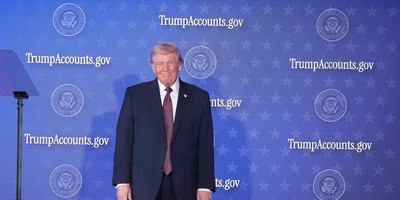The difference between shareholders and citizens is the reason business reforms and government doesn’t. The difference explains why a virtuous cycle of savings prevails in the former and a vicious cycle of spending prevails in the latter. The difference also argues that, far from being an obstacle to deficit reduction, tax cuts are crucial to it and to any real reform of government.
In business a virtuous cycle of continual cost reduction and increased efficiency prevails. It does not mean that it exists in every instance – certainly, some operate counter to it and subsequently fail – but it is on what long-term success depends.
Business’ virtuous cycle is enforced by competition. Without it, in the face of competitive pressure, the opposite occurs, ultimately resulting in bankruptcy. The culture of savings and the scrutiny of spending permeates business and is rewarded throughout.
In government, the opposite dynamic reigns. Its vicious cycle of spending is allowed by competition’s absence. Spending is the mark of governmental success. Increased spending means more power for politicians, more prestige for bureaucrats, and more programs for politically-selected recipients. Saving money means lowering all three groups’ return – to the benefit of none, because none profit from saving and competition does not require it.
The difference in the two systems’ primary stakeholders is no less pronounced. Again competition’s presence is determinative.
In the private sector, shareholders voluntarily choose their association with a business. They bring capital and the business returns wealth. In their decision, they have complete flexibility and mobility. They thus reinforce competition.
Recommended
Again, in the public sector, the opposite prevails. For the most part, citizens’ choice of association is much more limited, thus reinforcing government’s lack of competition.
These fundamental differences explain why business and government relate so differently to their stakeholders. Business, because of its reinforced competition, must seek to please all its shareholders. Government, because of its reinforced lack of competition, need pass only limited spending to select groups.
Each government program creates a relatively small group of highly motivated recipients. These receive a comparatively large per capita return. In contrast, the much larger group of paying citizens are far less motivated to oppose spending, because their per capita spending costs are small, being spread over a much larger number.
This dynamic, coupled with competition’s absence (an absence often de jure enforced or de facto, through subsidization), means government does not have to provide particularly good services, or even be very efficient in distributing them, for this disparity between limited return and extended cost to prevail.
To change government, we must change its prevailing dynamic. Competition must exist and must come first between government and its citizens. Specifically, citizens must benefit on a broad scale from government savings. Only a broader and consistent interest in savings can override the parochial interest of government spending.
Such a change will not be easy. Government spending has been allowed to increase greatly, while the taxpaying base has been allowed to decrease progressively – further tilting the field toward spending. But such a tilt has not always existed – for well less than half America’s history – and need not always exist.
Allowing citizens to become more like shareholders – allowing them to retain more of their wealth – must be part of any continued spending reduction. A portion of government savings must consistently be returned to citizens, proportionally increasing over time as government debt is reduced, in the same way a business returns profits to shareholders.
Only by changing its imbedded dynamic is there hope in changing government. Creating citizens’ demand for savings is the first step in creating a climate of competition within government. Once instilled, government’s motivation will be too.
The process cannot work in reverse. It is naïve to expect government, driven by an anti-competitive culture, to willingly adopt or long maintain a competitive one of its own accord.
Once reversed business’ virtuous cycle of savings will be as hard to undo as today’s vicious one of spending. As the vicious cycle’s self-destructive nature becomes daily more clear, it is time that we looked at establishing a self-constructive one.
Those who see sound fiscal policy as an either-or, between an increased economy via tax cuts or improved fiscal policy via deficit reduction, miss the larger point. The two are not mutually exclusive but, over the long-term, are mutually reinforcing. Until government’s prevailing dynamic is changed, conservatives cannot win the deficit and debt debate. Once it is, conservatives cannot lose.

























Join the conversation as a VIP Member